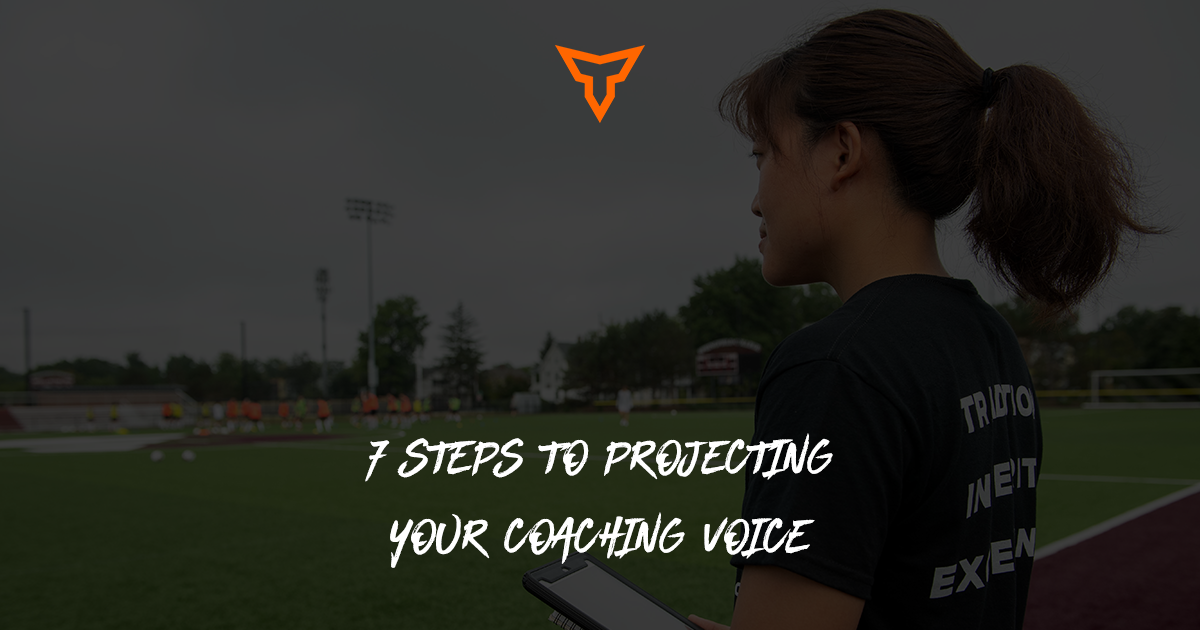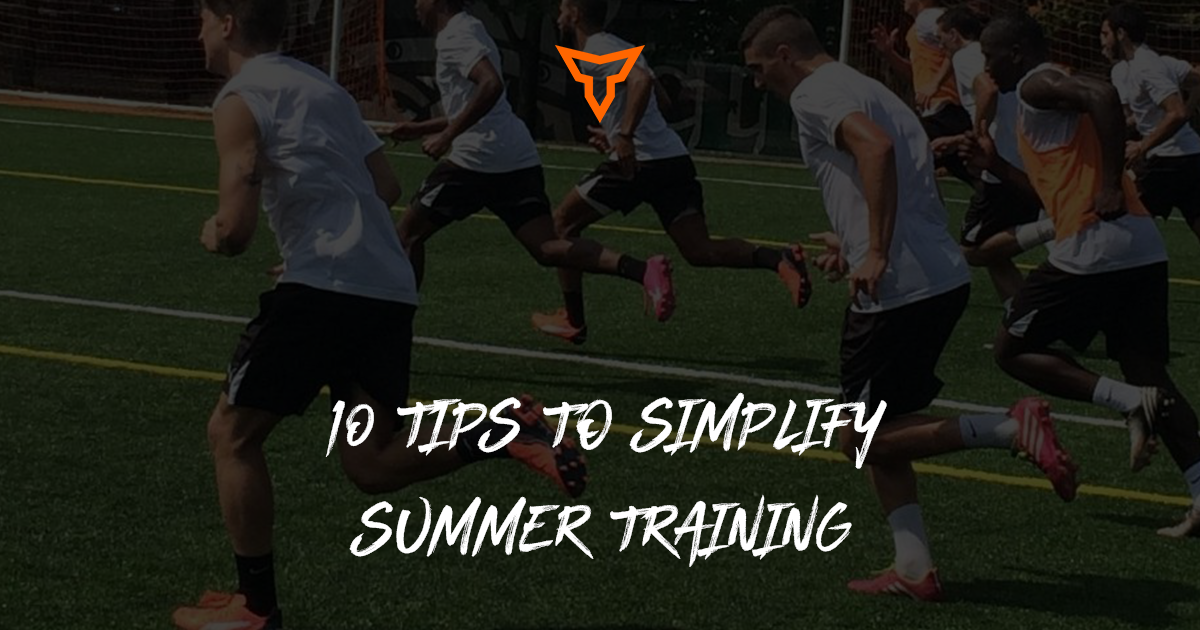Surviving (and thriving) as an independent strength & conditioning coach is harder than ever.
The strength & conditioning field – and fitness industry in general – is rapidly growing. There are more coaches than ever, more gyms than ever and more people training for sports (or life) than ever before.
With that being said, there’s also more competition within the industry. Getting clients or athletes is tough. It takes time, patience, and a solid business plan to be executed. Running a school program is an absolute grind. It takes leadership, experience, and mastery of your craft.
Being an independent strength coach is no walk in the park, contrary to the beliefs of those who sit on the sidelines and think we just wear sweatpants to work and lift weights all day. The work that goes in – the process – is what makes this the greatest job in the world.
How to Get Involved in the Strength Coach Industry
There are many ways to get involved in this industry. You can be in charge of S&C at a school, an intern, an apprentice, an assistant, a sport coach, a parent, etc., but I can only speak on one aspect of the world of physical preparation, and that’s the private sector.
This is the world I live in. 365/24/7.I’m hoping to take my experiences and convey them to other independent strength coaches and trainers out there looking for somewhat of a guide in starting or optimizing their career in this field.
I don’t know it all. Not even close. I screw up and learn new things pretty much daily. But these are some takeaways that I am confident in sharing and hopefully, it can help you run your training business to the best of your ability.
Common Challenges for Independent Strength Coaches & Trainers
Just like in an athletic assessment, you have to know where the dysfunctions are in order to know what to work on in training. In your career, you should be aware of the common challenges that you’ll inevitably face in order to know how to overcome them. Let’s look at some of the most common challenges to the independent strength coach.
One thing to note, this is written as if you’re already certified by a reputable institution to train people, you’re already training people and you get paid to do so. This is not going to help you start a career in training. This will help maintain your existing career.
- Sometimes viewed as the enemy
This is going to be a touchy subject for some, but it needs to be addressed. Within this industry, you can be looked at in a not-so-positive light by other coaches. I’ve seen it. I’ve confronted it. I’ve found the way around it, which I’ll discuss soon.
Here’s the real deal truth, though. There are a ton of idiots out there training people. A lot of times, these idiots have the largest networks, the loudest voice, and the furthest reach. Due to their alarmingly populated audience, you – the independent coach – get to be stereotyped and compartmentalized with these idiots. Fair? Nope. Happening? Everyday.
So, next time you get a funny look from an old school high school strength coach, simply explain to him that you like to push, pull, squat, hinge, carry, throw, and sprint, NOT balance, dance, obstacle course, handstand and make endless amounts of infographics. That’ll be a great ice breaker.
- Getting clients who already have school strength coaches
Piggybacking off that, here lies another issue you may run into. This is highly dependent on where you’re located. How do you work with an athlete, and charge them for it, when they already have a strength and conditioning program at school, for free?
I’m in Indianapolis where this is a very real obstacle. Almost every school has a program and we have top notch guys running a lot of the programs. Where you train out of may not be this way, so skip this section if that’s the case.
Later in the article, I’ll cover exactly how you can turn this obstacle into a situation that can boost your career and even help you find your niche in the industry.
- Adding value to what athletes are already doing in school
Again, continuing off the previous point, this roadblock goes hand-in-hand with being surrounded by excellent school S&C coaches. How do you add value to what they do in school? How do you make yourself an asset?
- Furthering education can be expensive
Lastly, how do you continue to educate yourself and master your craft when you work for yourself? There’s no company or school to help you fund your continuing education efforts. There are no price breaks or additional opportunities you may get for being employed by a gym, school, or hospital. How can you continue to sharpen the sword while you’re on the financial grind?
10 Survival Tips for Maintaining Your Career as an Independent Strength Coach
Above, we looked at some of the common challenges that an independent strength coach may run into. Yes, there are PLENTY more. Those don’t even scratch the surface, but they are very prominent and the tips below can help you overcome these throughout your career.
1. Seek Mentors
There is no “i” in “success.” Okay, I just pulled that one out of nowhere…but you get the point. Accomplishing your goals in life is very difficult if you’re trying to be a one-man-show (or woman). Seek mentors. A mentor is such a powerful tool to have because of the knowledge, wisdom, experience, and real world advice you can gain from their presence.
2. Connect with industry leaders and experienced coaches
Building off the thought of connecting with a mentor, you should also seek general advice from industry leaders. Maybe they can’t full-on mentor you, but creating friendships and connections with experienced coaches can not only make you a better coach, but it can help create a much healthier industry if we all have each other’s back.
3. Constantly pursue feedback
Seek feedback, don’t fear it. Nobody is perfect. We all make mistakes, we all perform at different levels, we all learn at different speeds. If you really want to be great, you can authentically seek feedback to help hone your craft. Ask your athletes and colleagues for things you can improve on and take on those challenges with a positive, hungry attitude.
4. Make education a priority
Never stop learning. Science is self-correcting. The world of coaching is a moving target and you have to adapt to the changes. Make education a priority for you. I’m not saying you have to chase certifications and resume-boosting letters behind your name. Education can be formal or informal, from a book, clinic, experience, mistakes, successes, etc. Make sure you’re constantly in student mode. The day you stop learning is the day your career begins to wither away.
5. Walk to the walk
Ummm. How do I say this? Lift, bro. You don’t have to be the strongest or the biggest – I am certainly neither – but you do have to walk the walk. Experiment on yourself before your athletes. Be healthy. Practice what you preach. It makes you so much more credible to be able to know how things should feel and relay that to your athletes to ensure they are performing everything properly.
6. Be authentic
Be authentically you. One of the best compliments I’ve ever received was another coach, that I respect on a supreme level, telling me I’m authentic. You do not try to be authentic. You just do YOU. Only you can do that, and that’s what sets you apart from everyone else. If you try too hard to fit in or be like other coaches, you’re losing the one thing that definitely sets you apart. Have fun, love the process and don’t take yourself too seriously.
7. Place a premium on experience
Earlier I mentioned making education a priority. More importantly, in my opinion, is gaining experience and making that a part of your educational process. Learning things hands-on is an incredible benefit to your long-term career path. Find the balance between book smarts and street smarts when it comes to your skillset.
8. Know your role
Just like The Rock used to say, “Know your role and shut your mouth!” Do what is within your scope of practice. Refer out for everything else. If you overstep your boundaries on this, you will eventually do more harm than good. Strength coaches help enhance physical athletic attributes. Physical therapists help recover and rehabilitate injuries. Dieticians and Nutritionists provide meal plans and dietary counseling. Medical Doctors diagnose and delegate treatment options for injuries and illnesses. Do your part. And only that.
9. Keep an open mind
One of the biggest takeaways I’ve learned on this professional journey of mine is that there are always several “right” ways and several “wrong” ways to do something. Some would say, “there’s more than one way to skin a cat,” but I honestly have no idea what the hell that’s even supposed to mean. Keep your mind open to any and all ways to help your athletes (and yourself, professionally). Don’t get married to a single method or philosophy. Don’t be a complete pushover or a yes-man either. Find a middle ground, stand for what you believe in and be open to everything else before you bash it.
10. Work your ass off
Last, but this is obviously not least. Work. Your. Ass. Off. Then when you feel like you’re working harder than everyone you know, turn it up 5 notches and work even harder. After that, you’ll definitely be working harder than everyone you know... so you turn it up 5 more notches. There will be 16+ hour days that kick your butt physically. There will be 0 hour days that kick your butt financially and mentally. There will be good, bad and every type of emotion in between. But always remember your “WHY,” and never let yourself become complacent. Never forget that you have the greatest job in the world.
----------
Boom. So there you have it. These are some very doable solutions to common issues you may run into during your journey as an independent strength coach or trainer. These survival tips are things I’ve learned and implemented along the way in my own career and hope they help you out as well.
Want more?
Subscribe to the TeamBuildr blog and never miss a post.
Subscribe to our blog
Subscribe to receive the latest blog posts to your inbox every week.
Related posts

From the GA's Desk: 7 Steps to Projecting Your Coaching Voice

Challenges Faced by High School Strength Coaches
